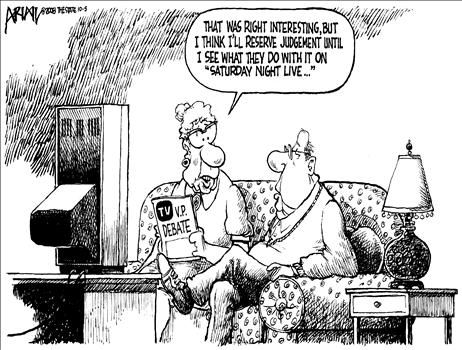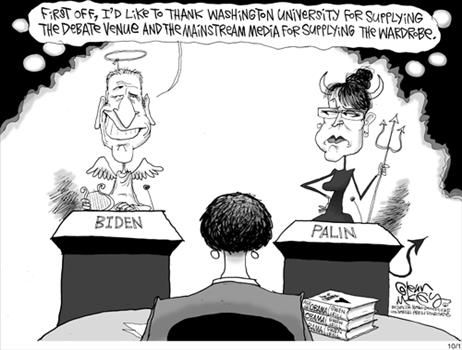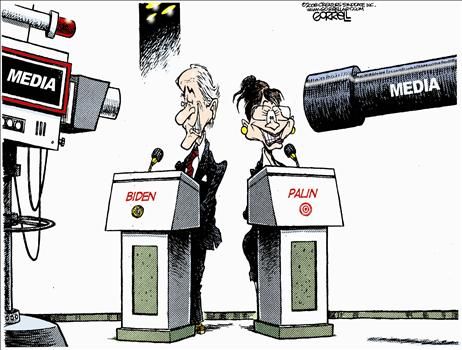It is not necessary to challenge the authority of the states to indulge in experimental legislation; but it would be strange and unwarranted doctrine to hold that they may do so by enactments which transcend the limitations imposed upon them by the Federal Constitution. The principle is imbedded in our constitutional system that there are certain essentials of liberty with which the state is not entitled to dispense in the interest of experiments. This principle has been applied by this court in many cases. Dorchy v. Kansas, 264 U.S. 286 , 44 S. Ct. 323; Wolff Packing Co. v. Industrial Court, 262 U.S. 522 , 43 S. Ct. 630, 27 A. L. R. 1280; Id., 267 U.S. 552 , 45 S. Ct. 441; Pierce v. Sisters, 268 U.S. 510 , 45 S. Ct. 571, 39 A. L. R. 468; Nixon v. Herndon, 273 U.S. 536 , 47 S. Ct. 446; Tumey v. Ohio, 273 U.S. 510 , 47 S. Ct. 437, 50 A. L. R. 1243; Manley v. Georgia, 279 U.S. 1 , 49 S. Ct. 215; Washington v. Roberge, 278 U.S. 116 , 49 S. Ct. 50; Chicago, St. P. M. & O. v. Holmberg, 282 U.S. 162 , 51 S. Ct. 56; Stromberg v. California, 283 U.S. 359 , 51 S. Ct. 532, 73 A. L. R. 1484; Near v. Minnesota, 283 U.S. 697 , 51 S. Ct. 625. In the case last cited the theory of experimentation in censorship was not permitted to interfere with the fundamental doctrine of the freedom of the press. The opportunity to apply one's labor and skill in an ordinary occupation with proper regard for all reasonable regulations is no less entitled to protection.
First, the fact that the governing majority in a State has traditionally viewed a particular practice as immoral is not a sufficient reason for upholding a law prohibiting the practice; neither history nor tradition could save a law prohibiting miscegenation from constitutional attack. . . .
* * *
Indeed, we have never held that moral disapproval, without any other asserted state interest, is a sufficient rationale under the Equal Protection Clause to justify a law that discriminates among groups of persons.
He said he would support the decision being returned to the states instead of the Federal government deciding because "I'm a federalist."
JOE SCARBOROUGH, CO-HOST, 'MORNING JOE': We’ve got Sen. John McCain, and we can ask him. Let’s bring in now, Republican presidential nominee, Sen. John McCain.
Sen. McCain, all morning we’ve been showing some of the pork through tax extenders that was put into this bill last night. Please explain to Americans, and let’s put the list up again. You’ve got almost $200 million in this bill for tax breaks for Puerto Rican and Virgin Island rum producers, $128 million for people who make auto racing tracks, wool research, kids wooden arrows $6 million.
Here, we have what Warren Buffet’s calling our economic Pearl Harbor, and the Senate still can’t help themselves. Why did these items have to be in this critical bill?
SEN. JOHN MCCAIN, PRESIDENTIAL CANDIDATE: Well, that’s just the way the system is working in Washington and the reason why it’s got to be fixed and it’s got to be changed. And no matter what the stakes are, you’ve got to stop this by starting to veto bills that come across the president’s desk. They can’t help themselves.
And if you like some of those pork barrel projects, look at some of the ones that Sen. Obama has proposed. Over $932 million worth of pork of barrel projects.
* * *
MIKA BRZEZINSKI, CO-HOST, 'MORNING JOE': Senator, it’s Mika Brzezinski here in New York, and we’ll be watching the debate tonight to see what happens. I want to just ask you one final question, though, about the bill because I think given, especially what you’ve been just saying on our broadcast right now, why then didn’t you vote against a bill that is corrupting and stand up to pork and all this spending during an economic crisis that some say this-puts this country on the brink of-of economic disaster?
MCCAIN: Because of what you just said, Mika, that this bill is putting us on the brink of economic disaster. There were plenty of other bills that I fought against, voted against-well, the bill to-you know, the Medicare prescription drug program, I was-I voted against it because it didn’t-because of the fact that it wasn’t paid for. We’re laying the cost on to future generations of Americans.
I’ve fought against plenty of bills. I am proud of my work spending my campaign, coming back to Washington, getting the Republicans at the table which they were not, improving the bill, and I believe it will pass.
Sen. Obama phoned it in.
BRZEZINSKI: But if we’re going to have leadership through a crisis like this, and if we’re going to look to you for that leadership, don’t we have to stand up to the very things that are bringing Washington and, at this point, Wall Street, down?
MCCAIN: If you look at the Citizens for a Sound Economy, the National Taxpayers Union, the Citizens against Government Waste, I have been a hero to them because I have fought continuously, continuously against these.
Sen. Obama has never stood up to the leadership of his party on any issue. Not a one. And I fought the leadership of my party and I have had success. I saved the taxpayers $6.8 billion on a tanker deal that was-that was going to cost the taxpayers that much because of this cozy deal. It ended up with people in jail.
I investigated Jack Abramoff, the leading-and he’s now in jail. The leading lobbyist in Washington, I fought against his pork barrel spending. And my record is very clear. Sen. Obama never has. There’s a difference.
Quote:Just watched the VP debate. The format precludes using strict debate judging, but as an old debate judge, I had to give Biden the edge on points made. The problem is, I think the full analysis tomorrow will show that the flat out misrepresented or lied on a whole bunch of points and she on not much. On likability she won and also made huge points on a positive and forward looking emphasis while Biden spent almost all of his time pointing backwards. Whether the MSM will report that accurately tomorrow is anybody's guess.
Please provide that "whole bunch of points" that you accuse Biden of misrepresenting or lying about.
Why are you against "pointing backwards?" Because doing so hurts your political team? Obama and Biden are running their campaign on the basis of needed change--and McCain doesn't represent that change--McCain is simply more of the same. As Biden said, the past is a prologue to the future if McCain is elected. Although it benefits the Republicans to divert attention away from the disaster of the last 8 years under a Republican administration, Obama and Biden will make the decisions concerning the points they will emphasize during the course of their campaign--not the Republicans.
(However, most liberals won’t accept Brookings Institute numbers so it’s anybody’s guess.)
It is possible to argue that returning certain decisions to the states strengthens the federal system and is thus "federalist".
You seem to me Debra to be ignoring subsidiarity with a view to imposing your position on abortion on states which have a strong religious tradition.
(McCain) said he would support the decision being returned to the states instead of the Federal government deciding because "I'm a federalist."
On the Road: St. Louis County, Missouri
“We arrived in St. Louis at noon. I took a walk down by the Mississippi River and watched the logs that came floating from Montana in the north " grand Odyssean logs of our continental dream.”
" Jack Kerouac, “On the Road”
2008.10.03 - 538 Missouri 02 - SL County Volunteers (01)
The meat of this post is below the slideshow, and it’s about the McCain ground game. It's probably going to make a little stir.
Our apologies in advance to the Obama organizers and volunteers who aren’t going to get the full justice they deserve in this post. They believe Missouri is going blue this year, and they’re working their bodies into the ground to make that happen.
We’re getting used to this relentless Obama operation: organizers trained in both tactics and campaign culture, working so hard they have trouble remembering what happened 48 hours ago " it’s too distant " and convinced that if they stay in their lane and trust the structure it’ll pay off in the end.
Obama has 40 offices now open in Missouri, and Justin Hamilton, Obama’s Press Secretary for Missouri, told us that while he couldn’t confirm below or above the published reports of 150 organizers (it didn’t come from the campaign), the campaign is only adding to its ground force. Organizers have now recruited 2500 neighborhood team leaders statewide, folks who do the far more effective work than any 30-second ad or yard signs, actual face-to-face contact and persuasion of their neighbors.
For a Democrat to win Missouri, he or she has to follow the Claire McCaskill map, which is win the blue urban centers in Kansas City and St. Louis city by wide margins, hold down the losses in outstate Missouri (McCaskill spent huge time in and around Springfield, and got to 42% there while Kerry only managed 37%), and then win highly populated St. Louis County (20% of Missouri’s overall vote) by enough votes to hold on for a win. McCaskill won St. Louis County by 12, Kerry only won it by 9. Barack Obama beat Hillary Clinton in the County, 63% to 36%.
Something interesting is happening with John McCain’s campaign. Up until now, we’ve had no trouble gaining access to field offices and volunteers. Here in St. Louis, we were told by Tina Hervey, Missouri Republican State Party Press Secretary, that she had never heard of FiveThirtyEight, and while they trusted Politico, we were people who they had to decide whether we “shouldn’t or don’t need to be talking to.” (McCain’s Missouri press secretary actually works out of Iowa, and did not return calls or email.) I told Tina that’s not a story we wanted to write, that this was our first Republican resistance, and that while she may not have heard of us, we’d probably go over 2.5 million site visits this week, now that we’re regularly past 400,000 per weekday. I told her I’d hold off writing her flat refusal and give her the opportunity to change her mind.
No budging. We were told that we’d be asked to leave public field offices we now attempted to visit. We did not get any promised follow-up helping get access to the post-debate Palin rally last night, and we were locked out. Hmm.
Let’s be clear. We've observed no comparison between these ground campaigns. To begin with, there’s a 4-1 ratio of offices in most states. We walk into McCain offices to find them closed, empty, one person, two people, sometimes three people making calls. Many times one person is calling while the other small clutch of volunteers are chatting amongst themselves. In one state, McCain’s state field director sat in one of these offices and, sotto voce, complained to us that only one man was making calls while the others were talking to each other about how much they didn't like Obama, which was true. But the field director made no effort to change this. This was the state field director.
Only for the first time the other day did we see a McCain organizer make a single phone call. So we've now seen that once. The McCain organizers seem to operate as maître Ds. Let me escort you to your phone, sir. Pick any one of this sea of empty chairs. I'll be sitting over here if you need any assistance.
Given a choice between taking embarrassing photos of empty phone banks, we give McCain’s people the chance to pose for photos to show us the action for what they continually claim we “just missed.” No more. We stop into offices at all open hours of the day, but generally more in the afternoon and evening. “Call time,” for both campaigns, is all day, but the time when folks over 65 are generally targeted begins in late afternoon and goes til 8 or 9pm. Universally, McCain’s people stop earlier. Even when we show up at 6:15pm, we’re told we just missed the big phone bank, or to come back in 30 minutes. If we show up an hour later, we “just missed it” again.
The McCain offices are also calm, sedate. Little movement. No hustle. In the Obama offices, it's a whirlwind. People move. It's a dynamic bustle. You can feel it in our photos.
Up to this point, we’ve been giving McCain's ground campaign a lot of benefit of the doubt. We can’t stop convincing ourselves that there must " must " be a warehouse full of 1,000 McCain volunteers somewhere in a national, central location just dialing away. This can’t be all they’re doing. Because even in a place like Colorado Springs, McCain’s ground campaign is getting blown away by the Obama efforts. It doesn't mean Obama will win Colorado Springs, but it means Obama's campaign will not look itself in the mirror afterward and ask, "what more could we have done?"
You could take every McCain volunteer we’ve seen doing actual work in the entire trip, over six states, and it would add up to the same as Obama’s single Thornton, CO office. Or his single Durango, CO office. These ground campaigns bear no relationship to each other.
Here on out, our skepticism is going to be higher. We truly respect organizers on both sides, because it is grindingly hard work for minimal pay. It’s powered by a belief in doing what’s right. We do not quote them or get them in trouble. Moreover, we truly respect direct action by volunteers " who do exist on the McCain side, just as a tiny, tiny fraction of the Obama side " but if the attitude continues on this unhelpful and obstructive turn, we’re going to spend less time making excuses for what we observe. Less benefit of the doubt. Show us real work and we'll cover it. We want to.
We'll be up in Chicago tonight making Nate pound RCP shooters. Then, Indiana. There's a huge story unfolding in Indiana.
McCain--a REPUBLICAN--could have said, "I support returning the abortion issue to the states because I'm a DEMOCRAT." If I had jumped in and stated that his statement is irrational because he is NOT a democrat--you and the others would jump in to somehow rationalize the irrational. This Republican game of double-speak--designed to deceive the ignorant public--is tiresome.





